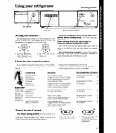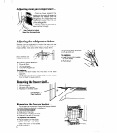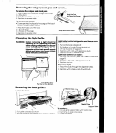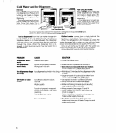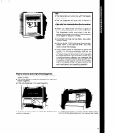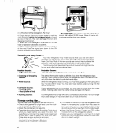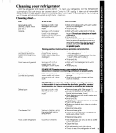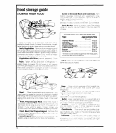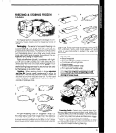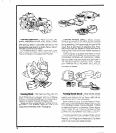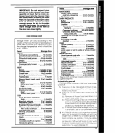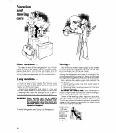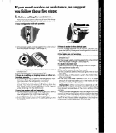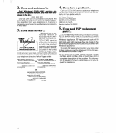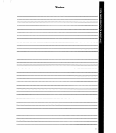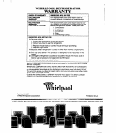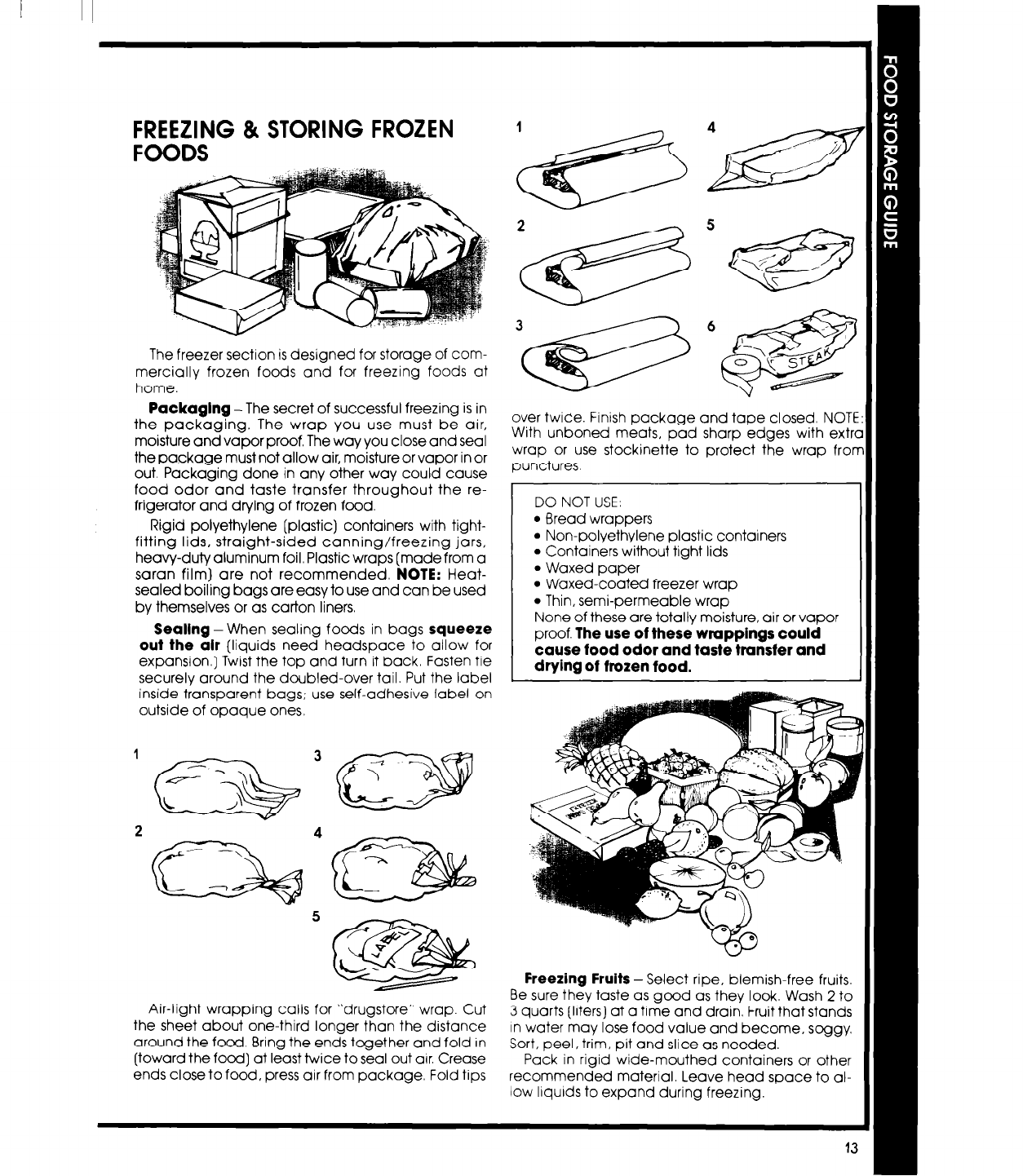
I
I I
FREEZING & STORING FROZEN
FOODS
The freezer section is designed for storage of com-
mercially frozen foods and for freezing foods at
home.
Packaglng
- The secret of successful freezing is in
the packaging. The wrap you use must be air,
moisture and vapor proof, The way you close and seal
the package must not allow air, moisture or vapor in or
out. Packaging done in any other way could cause
food odor and taste transfer throughout the re-
frigerator and drying of frozen food.
Rigid polyethylene [plastic) containers with tight-
fitting lids, straight-sided canning/freezing jars,
heavy-duty aluminum foil. Plastic wraps [made from a
Saran film) are not recommended.
NOTE:
Heat-
sealed boiling bags are easy to use and can be used
by themselves or as carton liners.
Sealing - When sealing foods in bags
squeeze
out the air
(liquids need headspace to allow for
expansion.) Twist the top and turn it back. Fasten tie
securely around the doubled-over tail. Put the label
inside transparent bags; use self-adhesive label on
outside of opaque ones.
Air-tight wrapping calls for “drugstore” wrap. Cut
the sheet about one-third longer than the distance
around the food. Bring the ends together and fold in
(toward the food] at least twice to seal out air. Crease
ends close to food, press air from package. Fold tips
over twice. Finish package and tape closed. NOTt
With unboned meats, pad sharp edges with extrl
wrap or use stockinette to protect the wrap fror
punctures.
DO NOT USE:
l
Bread wrappers
l
Non-polyethylene plastic containers
l
Containers without tight lids
l
Waxed paper
l
Waxed-coated freezer wrap
l
Thin, semi-permeable wrap
None of these are totally moisture, air or vapor
proof.
The use of these wrappings could
cause food odor and taste transfer and
drying of frozen food.
Freezing Fruits
- Select ripe, blemish-free fruits.
Be sure they taste as good as they look. Wash 2 to
3 quarts (liters) at a time and drain. Fruit that stands
In water may lose food value and become, soggy.
Sort, peel, trim, pit and slice as needed.
Pack in rigid wide-mouthed containers or other
recommended material. Leave head space to al-
low liqurds to expand during freezing.



